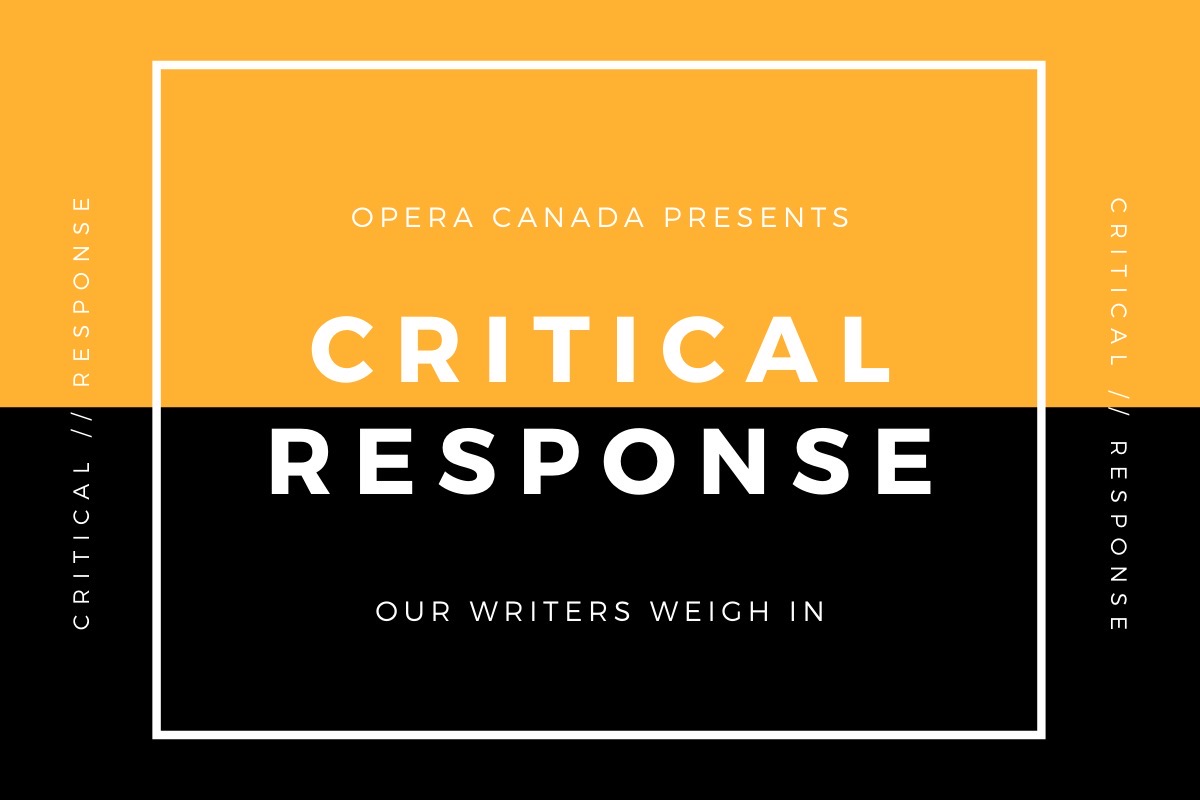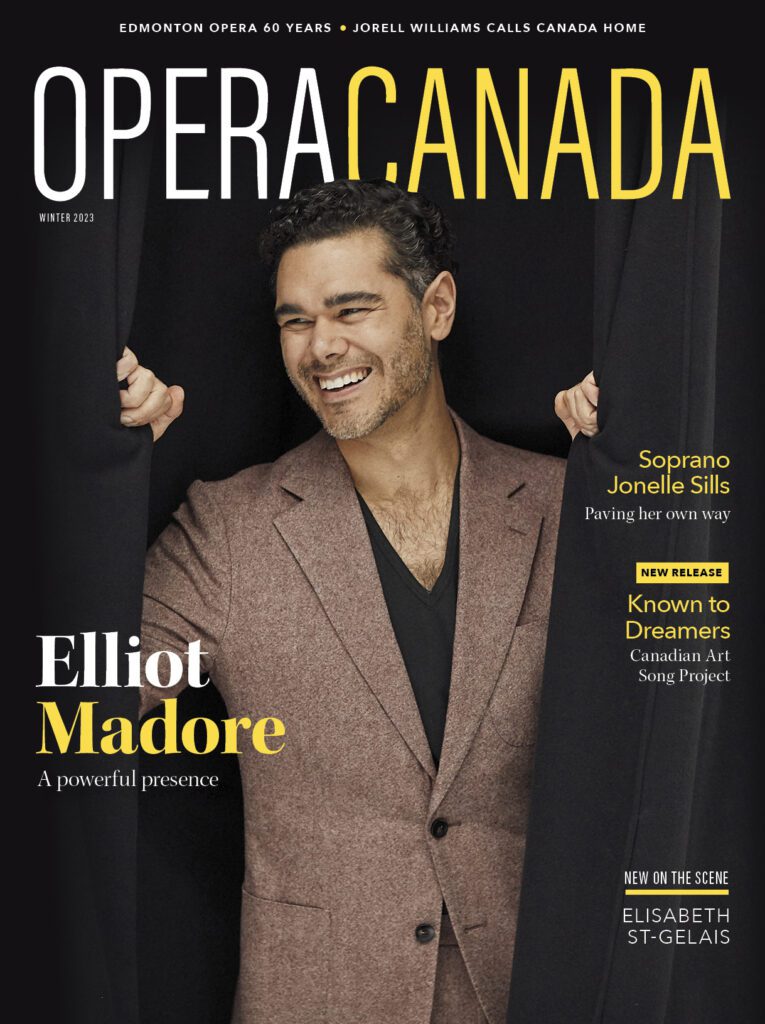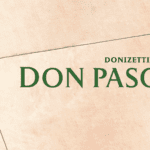In this Q&A series, we’ve asked performing arts writers across the country to weigh in on how the Canadian opera industry is handling the prolonged pandemic environment. Next up…Leslie Barcza.
What are your feelings on the types of programming being offered, mostly in lieu of live performances, by Canadian opera companies? Do you think it will successfully engage opera audiences?
Without live performance, who are we? In 2019 or before, a critic had de facto feedback from the live audience. Was the hall full? Did they like it? But now online we’re on our own. I can only offer my own gut-level assessment, grateful for the way this questioning helps orient me.
My inbox has been deluged, but so far I haven’t been moved to watch much of anything online. I recall for example a recent opera production by a Toronto company where the critical consensus was that the star sounded terrible; then seeing her touted as the star of a 2020 online attraction (since withdrawn) made my heart fibrillate wondering: how could we tell if she’s good? A studio isn’t the same. So we go back to first principles. A trained opera singer has a voice that can be heard without sounding forced or unpleasant while singing over an orchestra, an athletic feat comparable to a grand jeté.
As far as engagement, I think one has to distinguish between different parts of the audience. Some have so much money they can afford anything, a significant group here in Toronto who support many companies. That might be the difference between this city and the rest of the country. Notice that the so-called Canadian Opera Company is conspicuous for its imported leader, currently leading three companies at one time, while other Canadian companies are led by Canadians.
What are your opinions on live versus digital content in the current circumstances? Should companies be doing more to produce some type of live performances?
I want to echo something from a recent interview… when I asked Arkady Spivak of Talk is Free Theatre as to whether he’d be offering any virtual performances, he replied emphatically “Absolutely not, theatre is all about gathering.” I recall composer Dominick Argento explaining to me that the magic of opera is the trained voice + orchestra heard and felt in the same acoustic space. But one can be fooled in a recording with multiple takes & microphones. I am all in favour of helping to keep artists employed, to keep an industry afloat, but let’s not mistake virtual for real.
The pandemic scrambles the rules, so that some are impoverished and some get very rich. Youtube, Google, Zoom et al have seen a huge windfall. The content producers are often getting a tiny fraction of the value of what we’re hearing. The House always wins, they say. And so whether you’re listening to a singer’s “Imagine“ or “Ave Maria” the lion’s share goes to the system and the hosts, not the talent. It’s as though singers are again asked to sing for exposure while not being properly compensated: except now the restaurants, bars and even the opera companies are in the same boat. A business model that takes into account the real costs of real estate space and hosting might be a good thing for the future. Online dodges that, even while offering a pale shadow of the real product. I am concerned that the virtual model dumbs it down even further, when more people need to discover the magic. No, Phantom of the Opera is not actually an opera.
The government should investigate some sort of levy on YouTube, Zoom et al to make sure the content producers get their share. In the meantime I’m reminded of a Canadian agency whose mandate has become a little less defined with time, attacked by the opposition and perhaps open to a renewal of their mission, namely the CBC. What better platform for artists especially of the risky non-commercial variety? Opera is just another Schitt’s Creek waiting to find its cult following.
I respect the need for masks & physical distancing protocols for now. But live theatre and concerts will be back.
What are your observations on how Canada is supporting its opera artists, and implications how this could change post-pandemic?
The government aid to the most vulnerable, to gig-workers? CERBs etc. are a good idea. The language of austerity and worries about balancing budgets are misplaced at this time, when the purchasing power of the poorest 25% of the population is vital to keep the economy going. This was a precarious industry to begin with. Universal basic income (recently mentioned in Barrie, ON and San Francisco) is worth investigating for mid-career artists, even after the pandemic ends.
Support from funding agencies could be contingent upon the composition of casts and personnel employed backstage. At one time Canadians were fed attractions via Sol Hurok’s model: that experts know talent and we the audience are ignorant, forcing us to import talent. Our soccer teams import players from abroad. Can you imagine the screams of rage if those soccer teams demanded funding from a federal agency supported by tax money? But that’s what I feel is happening with the Canadian Opera Company. Their Ensemble Studio (like the Atelier lyrique in Montreal) should more properly be thought of as an advanced training program comparable to Summer Opera Lyric Theatre. The National Ballet and Stratford Festival are companies of dancers and actors. Even for short seasons singers should be in the company, and as much as possible, Canadian rather than imported. Imports are a luxury we can’t afford right now.
Do you perceive there to be national differences in the ‘will’ to produce opera during these pandemic times?
The question could be from a Richard Wagner pamphlet for 2020, touching upon something complex. Where does the transaction begin? Does the impulse begin with creators: singers wanting to sing, composers wanting to set words to music? Or does it begin with the arrival of an audience? I mention Wagner also because lurking underneath might be nasty racial sentiments, for example blaming Americans for their pandemic troubles. Our will to produce opera, indeed our desire for normal life, struggles against the cold logic of good hygiene, given the dangers of singing and crowding into a theatre. I also miss friendly hugs.
Leslie Barcza is a classically trained composer, librettist, keyboardist, singer & music-director. Leslie has written or adapted over twenty original music-theatre pieces including three operas, five original libretti, and music directed dozens of performances in diverse styles & media for Toronto community theatres. Leslie has taught at the Royal Conservatory of Music & University of Toronto’s School of Continuing Studies, and blogs about music and theatre as barczablog.com.










